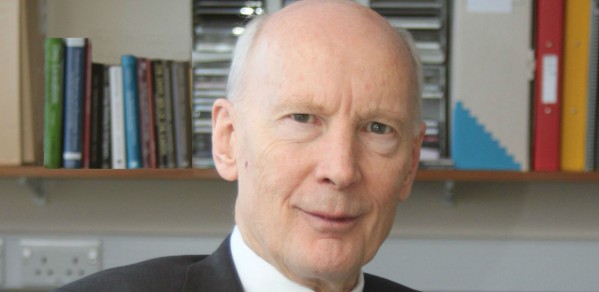
Professor Robert Mair CBE FREng FRS of the Department of Engineering has been appointed to the House of Lords as an independent crossbencher. As a crossbencher, he will owe no allegiance to a political party and will maintain the ability to take part in legislative debates free of party considerations.
"I am greatly honoured by this appointment which I view as also a tribute to my many colleagues in CSIC and elsewhere in the Department of Engineering."
Professor Robert Mair
The House of Lords Appointments Commission is an independent non-statutory advisory body set up by the Prime Minister to make recommendations for non-party-political peerages. The Commission last recommended non-party-political peers in February 2013. The Commission's remit is to find people of distinction who will bring authority and expertise to the House of Lords.
Professor Mair is a world-renowned civil engineer and a leading expert on infrastructure and construction. A Fellow of both the Royal Academy of Engineering and the Royal Society, he is Head of Civil and Environmental Engineering at Cambridge University, and was Master of Jesus College from 2001 to 2011. He is the Sir Kirby Laing Professor of Civil Engineering.
Prior to his appointment at Cambridge in 1998 he spent 27 years in industry, founding the Geotechnical Consulting Group, a London-based consulting firm, in 1983. He recently founded the Cambridge Centre for Smart Infrastructure and Construction (CSIC), a group with the mission of turning research into commercial application to transform the future of infrastructure.
Professor Mair has advised on many notable, large-scale underground engineering projects including the Jubilee Line Extension, the Channel Tunnel Rail Link (now HS1) and metro projects in Amsterdam, Rome and Singapore. He is a member of the Expert Panel for Crossrail in London – currently Europe’s largest construction project.
In 2012 he chaired the joint Royal Society and Royal Academy of Engineering report on shale gas extraction, commissioned by the Government’s Chief Scientific Adviser. He is Chairman of the Science Advisory Council of the Department of Transport, a Vice-President of the Institution of Civil Engineers and engineering adviser to the Laing O’Rourke Group.
His PhD at Cambridge was on the subject of centrifuge modelling of tunnel construction in soft ground. His work has also included the introduction of compensation grouting in the UK as a novel technique for controlling settlement of structures during tunnel construction. The technique was used on the Jubilee Line Extension Project for the protection of many historic buildings, including the Big Ben Clock Tower at the Palace of Westminster and has now been widely adopted.
Professor Mair has published numerous papers, mainly on the geotechnical aspects of soft-ground tunnelling and excavations. He was awarded the British Geotechnical Society Prize in 1980 for his work on tunnels, the Institution of Civil Engineers Geotechnical Research Medal in 1994, their Gold Medal in 2004 and their President’s Medal in 2013.

